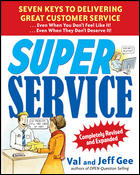Retail Insight: 5 Ways to Win at Retail

Owner Stacey Pape’s Miniature Goldendoodle, Aspen, is a welcome face in the showroom and community.


SP Floors’ showroom is set up to encourage customers to think outside the box.





Less than a decade old, SP Floors & Design Center in McMurray, Pa., has grown into one of the premiere dealers in the Pittsburgh region. Thanks to a great location in a growing neighborhood and a smart business plan, store owner Stacey Pape said company sales are expected to exceed $5 million in its eighth year. Part of CarpetsPlus, Pape was tapped by the buying group to showcase her store’s capabilities to other members, and the store was named CarpetsPlus ColorTile’s Retailer of the Year in 2016. Here are some of her insights to success.
5 Ways to Succeed:
- Create a Memorable Shopping Experience
- Plan Ahead
- Keep Learning
- Create a Community Destination
- Attract and Retain Skilled Installers
1. Create a Memorable Shopping Experience
Showroom design is at the forefront of Pape’s retail strategy. “The selection center is the cornerstone of how we are trying to change what a typical flooring store is,” she said. “We have our showroom set up to think outside the box. It is a fun, interactive buying experience that relates to people’s creativity.”
When they walk in, customers are immersed into an eclectic designer area with a rustic industrial, yet transitional feel. The store features brick walls, pipes for shelves, barn wood doors, and showcases different flooring in non-traditional applications such as on the wall and as countertops. “Customers come in and are intrigued because they never really thought of that,” Pape said.
2. Plan Ahead
Innovative showroom aside, Pape credits much of her success with the foresight to set initiatives early, which includes everything from hiring and placing the right people in the right roles to ensuring a succession plan is in place.
When CarpetsPlus held a summit for its buying group members at Pape’s store last fall, they covered best practices in addition to the many issues people in the flooring business deal with: succession, partnerships and other things where a lot can go wrong. “It’s important to make sure your structure is defined and everybody who is a key player has a role and knows what their role is with succession planning in mind,” Pape said.
She knows firsthand how badly a lack of planning can affect a business. Having grown up in the industry with her father at the helm of a different retail flooring enterprise, a lack of succession planning was integral to her decision to branch out on her own in 2009. “You need to empower employees to do well and to make mistakes,” she explained. “They know their expectations, and know if they work hard, it will be rewarded. Done right, the [business planning] lets you work on your business and not spend too much time working in it.”
Pape says an early lesson is probably among the most significant elements in achieving long term goals.
“The financial part is important,” she explained. “My father told me: ‘Own your property, don’t rent.’ A lot of people get in over their heads and get big too fast. No matter what happens in five years, if my building is paid off, I can rent it. Even if the retail environment changes, I can rent it [to another business]. It makes a big difference when you don’t have that big nut. That security gives me the ability to move forward.”
3. Keep Learning
Providing different avenues for her team to continue learning has proven instrumental. In addition to many of the industry standard training opportunities offered by vendors, trade shows, World Floor Covering Association (WFCA) and, of course, CarpetsPlus/ColorTile, Pape is constantly on the lookout for personal and business growth through studying books on business and its philosophy with a strong lean toward entrepreneurial approaches.
“We are always learning and evolving, always growing,” she noted. “I buy books for the entire staff and we talk about them and implement systems that apply. It’s about serving customers and your employees, and how they treat the people you do business with. The approach has made a big difference with who we are and who I am as a leader/boss.”
Pape sees her role to be more of a mentor for her team whereby she can empower people to follow company policy, but make decisions that are right and not necessarily company policy. “It has helped us to be a better company and better to customers,” she said. “You have to find ways to make sure you’re not just another flooring store that is going to go out of business. If you want people to come to your store, you have to give them a reason to come to your store.”
4. Create a Community Destination
SP Floors has worked hard to engrain itself into the local landscape. Along with the usual sponsoring of local youth teams, Pape works with community groups and is skilled at employing social media venues to stay top of mind with customers who look to the online world for advice on products and businesses.
“Customers don’t go out to shop as much nowadays,” she said. “Word of mouth is coming back because of the internet and people are figuring out where to shop before leaving their homes. Because of Yelp, Houzz and other sites, word of mouth carries a lot of weight again. It’s unbelievable how much people share—asking for everything from pediatricians to flooring stores.”
SP Floors is also ingrained in the community with its mascot, Aspen, Pape’s Mini Goldendoodle. In addition to attending community events, Aspen approaches customers and their children as soon as they enter the showroom providing an interactive experience. Aspen is not only featured in the company’s marquee and marketing material, she is always ready to sell and quick to help point out any pet smart offerings for interested clients. She has become so recognizable, in fact, that many customers come to the store just to visit Aspen.
5. Attract and Retain Skilled Installers
Customers in place, Pape ensures her clients are completely satisfied by working with a select group of subcontracted installation teams she believes are the best in her market. To ensure customer happiness, her teams take photos of the installations upon completion and have customers rate the service and job. To ensure a desire by the installation contractors to seek out work with her company first, she incents them with different recognition techniques, gift cards and premium rates.
“We pay our subs really well and make sure they have what they need and their helpers are taken care of,” she said. “Most of them have the ability to work other places but they tend to fill their schedule with us first.”
Retail Spotlight
Years in business: 8
Sales: $5 million
Product Mix: Commercial and Residential Carpet & Rugs, Hardwood, Ceramic, Cork, Vinyl/LVT, Stone
Stocking: Rolls
# of Locations: 1
Staff: 17 (4 sales associates)
Installers: Subcontractors
Looking for a reprint of this article?
From high-res PDFs to custom plaques, order your copy today!














